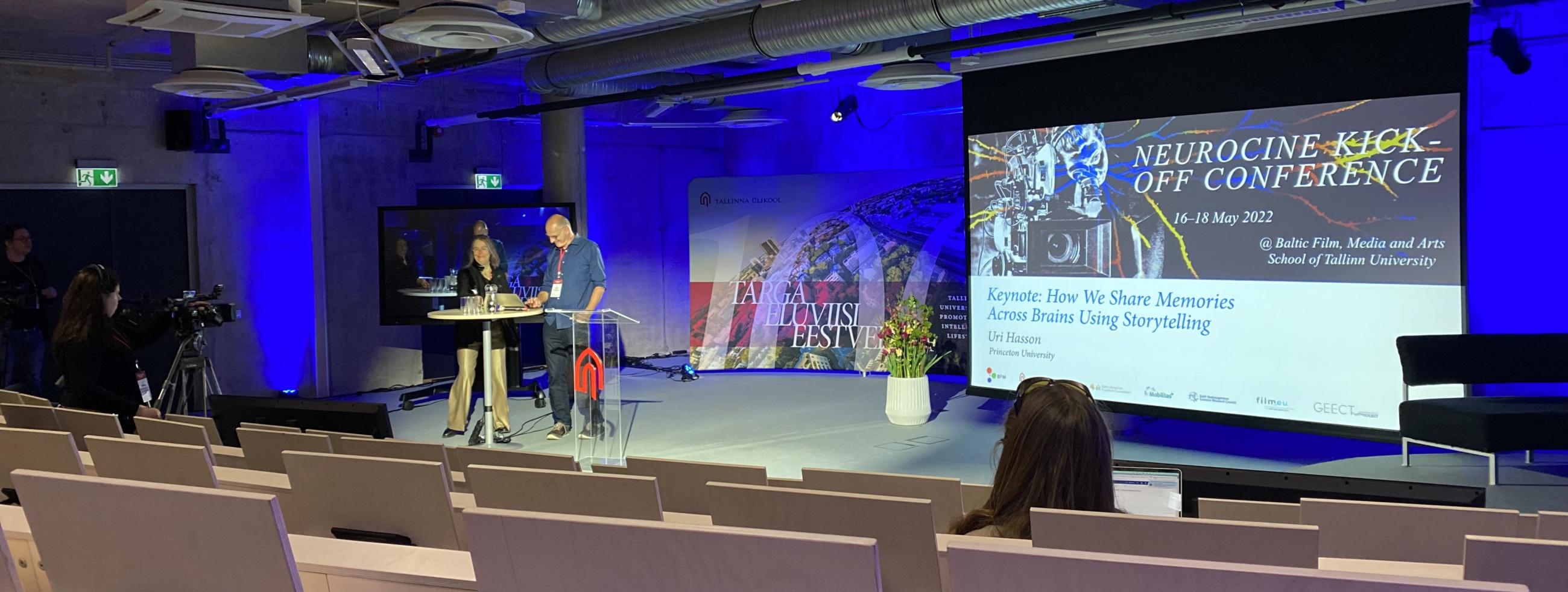Baltic Film, Media and Arts School builds bridges between the disciplines of filmmaking and neuroscience
Baltic NeuroCine conference is organised by the Baltic Film, Media and Arts School of Tallinn University from 16th to 18th of May. The conference will introduce the new and exciting multidisciplinary research field of neurocinematics in Estonia and the Baltic Region.

The programme features keynotes by professor Uri Hasson, Princeton University, presenting groundbreaking research on neurocinematics. And by Katrin Heimann, Aarhus University, whose workshop on micro-phenomenological analysis of individual experiences is one of the highlights of the programme.
The speakers of the conference include both well-known filmmakers and ground-breaking scientists: Vittorio Gallese (professor of Psychobiology at the University of Parma, one of the scientists who discovered mirror neurons), Thomas Ackerman (cinematographer: Beetlejuice, Jumanji etc.), Oscar nominated director Tanel Toom (Truth and Justice, The Confession), to name a few of many.
The aim of the conference is to build bridges between the disciplines of filmmaking and neuroscience and boost collaboration between art and science. As the conference will introduce the new and exciting multidisciplinary research field of neurocinematics in Estonia and the Baltic Region, the programme also features professor Uri Hasson himself who in a groundbreaking work in 2008 originally coined the term neurocinematics, and Katrin Heimann whose workshop on micro-phenomenology is one of the highlights of the programme.
The key catalysts of the event are two filmmakers, EU Mobilitas Pluss Research Professor Pia Tikka and Associate Professor of Film Arts Elen Lotman. “Both art and science are ways for the human mind to travel towards the unknown with excitement instead of fear,” Lotman envisions. "Studying how the human mind makes sense of narratives gives us information on how people understand one another and the everyday world around them," adds Tikka.
Associate Professor of Film Arts Elen Lotman said that the conference is a launch of something much bigger - the art and science merging in BFM and starting a interdisciplinary revolution. “Both art and science are ways for the human brain to travel towards the unknown with excitement instead of fear and these fields together have a potential to contribute to humanity in unpredictable ways,” she said.
The Baltic Film, Media and Arts School´s doctoral programme is one of the few places in the Baltic Region where it is possible to conduct practice-based research in filmmaking. Lotman, whose fresh doctoral thesis on filmmaker's experiential heuristics is the first of the BFM's PhD program, is excited of the multidisciplinarity of neurocinematics: “We have a wonderful set of talks that relate filmmakers’ experiences and neurophysiological observations, and, more generally, relates the brain with mind, memories and storytelling." Tikka reminds that the conference also covers critical viewpoints pointing at both benefits and limitations of the available methods. "And of course, we look into the future of storytelling in virtual reality, my specific research field at the BFM," says Tikka.
The hybrid conference will feature both online and live talks and workshop sessions, and many exciting speakers and topics.
The Baltic NeuroCine conference is supported by the European network for education in Film & Media production (GEECT), the FilmEU_RIT pilot project by European Universities Alliance for Film and Media Arts, together with the Baltic Film, Media and Arts School, Tallinn University. Professor Uri Hasson's keynote is made possible by the Baltic-American Freedom Foundation (BAFF). Professor Katrin Heimann's visit is supported by the EU Mobilitas Pluss project (MOBTT90) funded by the Estonian Research Council.